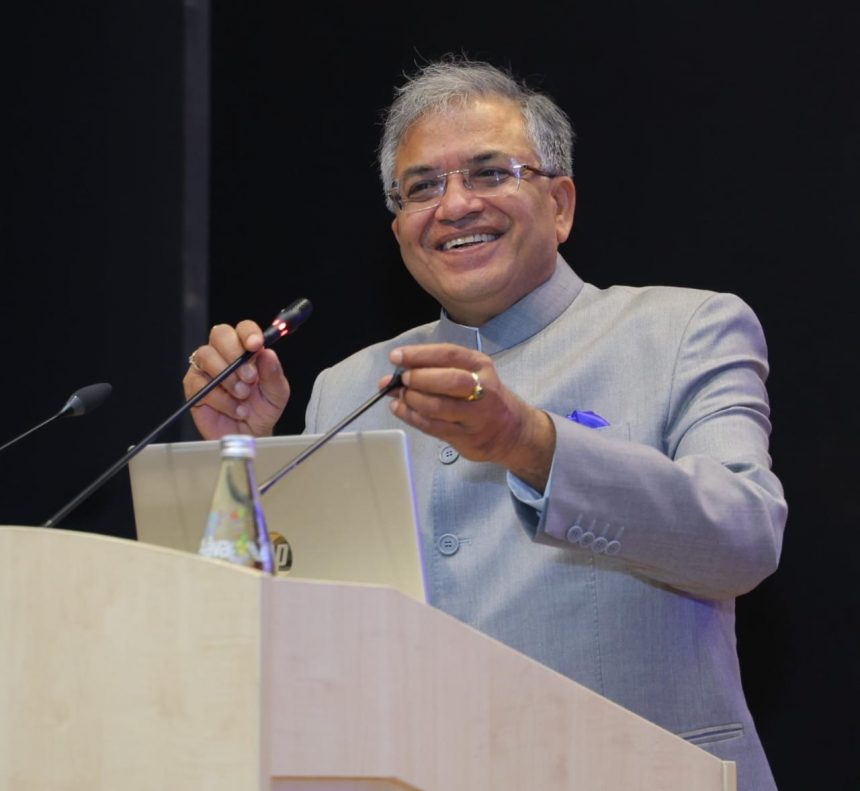The Election Commission of India (ECI) today announced a comprehensive set of 18 new initiatives aimed at strengthening the electoral process, improving voter experience, and fostering greater transparency and efficiency. These reforms span across key areas including electors, political parties, procedural reforms, legal frameworks, and election staff development.
A. Enhancing Electors’ Experience:
• Voter Limit per Polling Station: To ensure a smoother voting experience and manage crowds effectively, the maximum number of voters at a polling station has been restricted to 1200.
• Increased Polling Access: Additional polling booths will be set up in high-rises and large colonies to enhance accessibility for voters.
• Streamlined Electoral Roll Updation: For more accurate and timely electoral roll updation, the ECI will now directly obtain death registration data from the RGI (Registrar General of India) database, with updates following due verification.
• Voter Information Slip Revamp: Voter Information Slips will be made more elector-friendly, with the serial number and part number of the voter prominently displayed for ease of identification.
B. Engaging with Political Parties:
• Pan-India All-Party Meetings: The ECI has successfully conducted 4,719 pan-India all-party meetings at the CEO, DEO, and ERO levels, with over 28,000 representatives of political parties participating, fostering dialogue and collaboration.
• High-Level Consultations: The Election Commission held direct meetings with the heads of prominent National and State political parties, including AAP, BJP, BSP, CPI(M), and NPP, to address key electoral issues.
• Capacity Building for Booth Level Agents: Capacity building programs for Booth Level Agents (BLAs) of political parties have been initiated at the India International Institute of Democracy and Election Management (IIIDEM) in Bihar, Tamil Nadu, and Puducherry.
C. Driving Procedural Reforms:
• Integrated Dashboard – ECINET: A significant step towards digitalization, the ECI has introduced a new Integrated Dashboard – ECINET. This aims to provide all services for all stakeholders at a single point, effectively replacing over 40 separate applications and websites with a single, comprehensive platform.
• Unique EPIC Numbers: The long-standing issue of duplicate EPIC (Elector Photo Identity Card) numbers has been resolved, with a new mechanism for unique EPIC numbers now in place.
D. Strengthening Legal Frameworks:
• Stakeholder-Centric Training: The ECI has identified 28 key stakeholders in the electoral process, including electors, election officials, political parties, and candidates. Based on the Representation of the People Act 1950, 1951, Registration of Electors Rules 1960, Conduct of Election Rules, 1961, and ECI instructions, training presentations are being prepared for each of these stakeholders to ensure comprehensive understanding of their roles and responsibilities.
E. Empowering Election Staff:
• Standard Photo ID for BLOs: Booth Level Officers (BLOs) will now be provided with a standard photo ID card, enhancing their official recognition.
• Extensive Capacity Building at IIIDEM: IIIDEM, New Delhi, is spearheading extensive capacity building programs. Over 3000 Booth Level Supervisors have already been trained, with plans to train over 1 lakh BLO Supervisors in the coming years.
• Orientation for SMNOs & MNOs: Orientation programs for Senior Management Nodal Officers (SMNOs) and Management Nodal Officers (MNOs) from CEO offices of all 36 States/UTs have been conducted at IIIDEM.
• Police Training: Training has also been conducted for Police Officers from Bihar at IIIDEM, ensuring better coordination and understanding of election protocols.
F. Enhancing ECI’s Internal Operations:
• Biometric Attendance: The ECI has implemented biometric attendance for its staff, promoting greater accountability and efficiency.
• E-Office Rollout: The operationalization and rollout of E-Office will further streamline internal processes and reduce paper usage.
• Regular Meetings with CEOs: Regular meetings with Chief Electoral Officers (CEOs) will continue to foster effective communication and coordination across all states and union territories.
These 18 initiatives underscore the Election Commission of India’s unwavering commitment to conducting free, fair, and transparent elections, and continuously improving the democratic process for all citizens.








